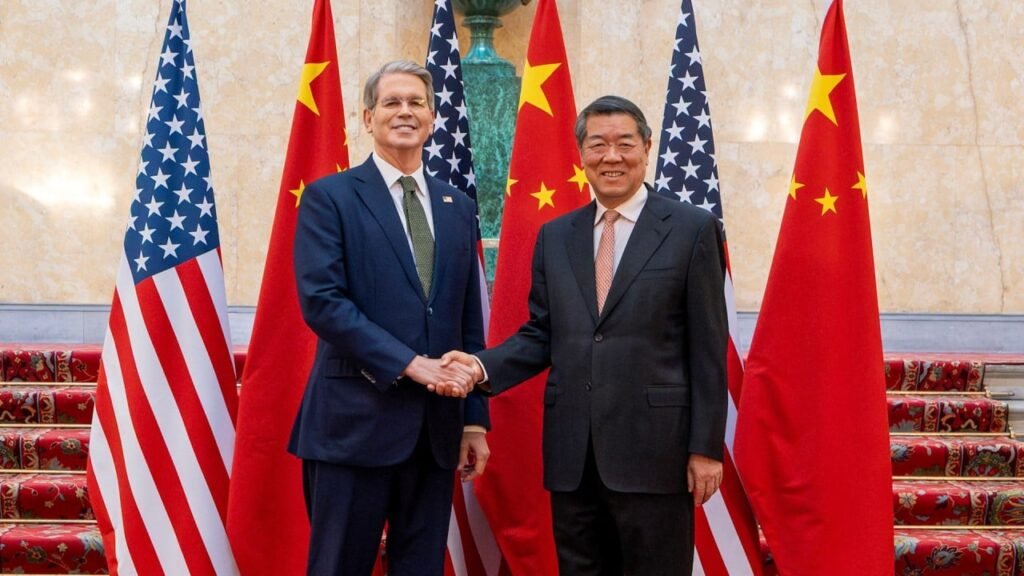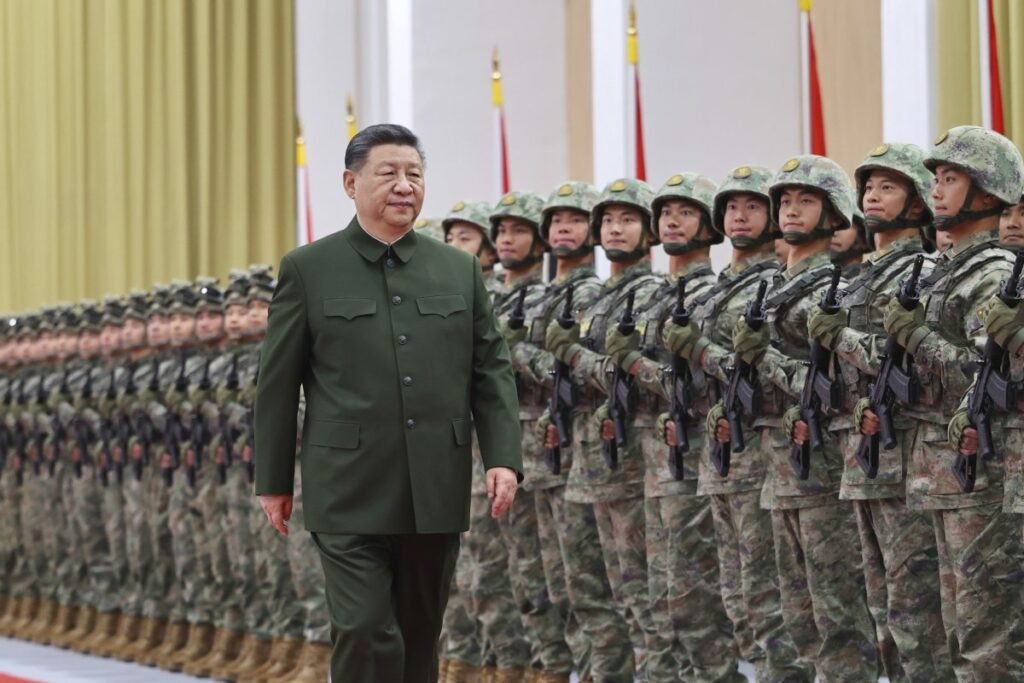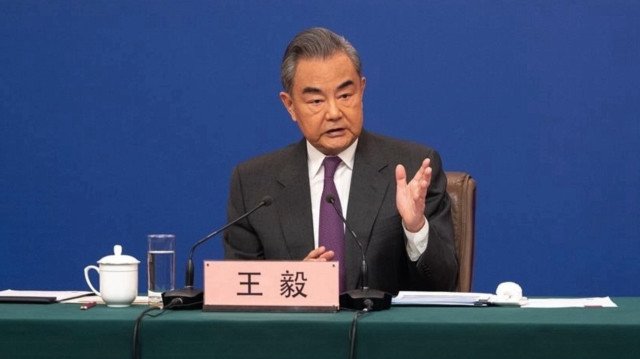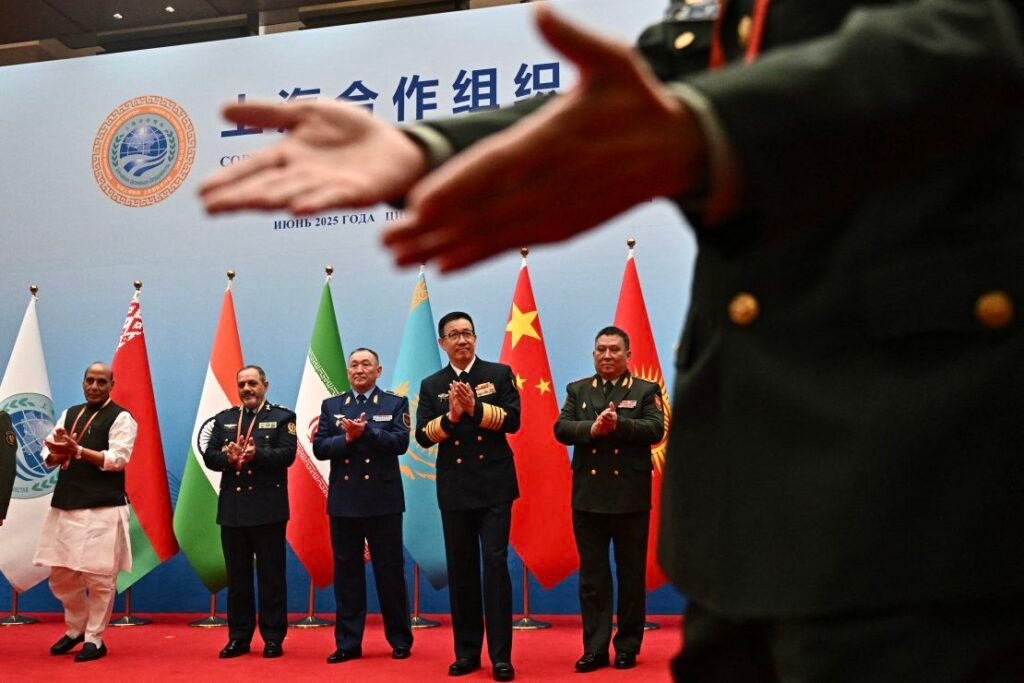Through the 12 days of the recent Israel-Iran conflict, China moved quickly to position itself as a potential mediator and voice of reason amid a spiralling regional crisis.
The day after Israel’s unprovoked attack on Iran on June 13, Beijing reached out to both sides to express its desire for a mediated solution even as the country’s top diplomat, Foreign Minister Wang Yi, condemned Israel’s actions as a violation of international law.
Chinese President Xi Jinping soon followed with calls for de-escalation, while at the United Nations Security Council, China joined Russia and Pakistan in calling for an “immediate and unconditional ceasefire”.
When Iran threatened to blockade the strategically important Strait of Hormuz, through which 20 percent of the world’s oil passes, Beijing was also quick to speak out.
The Ministry of Foreign Affairs instead called for the “international community to step up efforts to de-escalate conflicts and prevent regional turmoil from having a greater impact on global economic development”.
Beijing’s stance throughout the conflict remained true to its longstanding noninterference approach to foreign hostilities. But experts say it did little to help shore up its ambition of becoming an influential player in the Middle East, and instead exposed the limitations of its clout in the region.

Why China was worried
Unlike some countries, and the United States in particular, China traditionally approaches foreign policy “through a lens of strategic pragmatism rather than ideological solidarity”, said Evangeline Cheng, a research associate at the National University of Singapore’s Middle East Institute.
This approach means China will always focus on protecting its economic interests, of which it has many in the Middle East, Cheng told Al Jazeera.
China has investments in Israel’s burgeoning tech sector and its Belt and Road infrastructure project spans Iran, Saudi Arabia, Qatar, Oman, Kuwait, Iraq, Egypt and the United Arab Emirates.
Critically, China relies on the Middle East for more than half of its crude oil imports, and it’s the top consumer of Iranian oil. A protracted war would have disrupted its oil supplies, as would an Iranian blockade of the strategically important Strait of Hormuz – something threatened by Tehran’s parliament during the conflict.
“War and security instability not only undermines Chinese investment and trade and business… but also the oil price and gas energy security in general,” said Alam Saleh, a senior Lecturer in Iranian Studies at the Australian National University.
“Therefore, China seeks stability, and it disagrees and opposes any kind of military solution for any type of conflict and confrontations, no matter with whom,” he said.
John Gong, a professor of economics at the University of International Business and Economics in Beijing, told Al Jazeera that China’s top concern through the conflict was to avoid “skyrocketing oil prices” that would threaten its energy security.
Flexing diplomatic muscle, protecting economic might
Aware of China’s friendly relations with Iran and Beijing’s economic fears, US Secretary of State Marco Rubio called on Beijing to keep Tehran from closing the Strait of Hormuz as ceasefire negotiations stumbled forward this week.
It was a brief moment of acknowledgement of Beijing’s influence, but experts say China’s overall diplomatic influence remains limited.
“China’s offer to mediate highlights its desire to be seen as a responsible global player, but its actual leverage remains limited,” Cheng said. “Without military capabilities or deep political influence in the region, and with Israel wary of Beijing’s ties to Iran, China’s role is necessarily constrained.”
To be sure, Beijing has demonstrated its ability to broker major diplomatic deals in the region. In 2023, it mediated the normalisation of relations between Iran and Saudi Arabia. While seen as a huge diplomatic win for China, experts say Beijing owed much of its success to fellow mediators, Oman and Iraq. China also mediated an agreement between Palestinian factions, including Hamas and Fatah, in July 2024, under which they committed to working together on Gaza’s governance after the end of Israel’s ongoing war on the enclave.
But William Yang, a senior analyst for Northeast Asia at the Brussels-based International Crisis Group, said the odds were stacked against China from the beginning of the latest conflict due to Israel’s wariness towards its relationship with Iran.
In 2021, China and Iran signed a 25-year “strategic partnership”, and Iran is an active participant in the Belt and Road project. Iran has also joined the Beijing-led Shanghai Cooperation Organisation and this year took part in China’s “Maritime Security Belt” naval exercises.
Iran’s “resolute opposition to American hegemony” also aligns well with China’s diplomatic interests more broadly, compared with Israel’s close ties to the US, Yang said.

China’s dilemma
It’s a scenario that could be repeated in the future, he said.
“This case also reinforces the dilemma that China faces: while it wants to be viewed as a great power that is capable of mediating in major global conflicts, its close relationship with specific parties in some of the ongoing conflicts diminishes Beijing’s ability to play such a role,” Yang said.
For now, Beijing will continue to rely on the US as a security guarantor in the region, he added.
“It’s clear that China will continue to focus on deepening economic engagement with countries in the Middle East while taking advantage of the US presence in the region, which remains the primary security guarantor for regional countries,” Yang said.
“On the other hand, the US involvement in the conflict, including changing the course of the war by bombing Iranian nuclear sites, creates the condition for China to take the moral high ground in the diplomatic sphere and present itself as the more restrained, calm and responsible major power,” he said.








